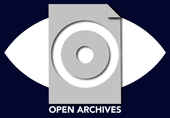Digital knowledge in primary and secondary education of the Argentine Republic
DOI:
https://doi.org/10.15332/erdi.v8i2.2318Keywords:
Digital knowledge, curriculum, teaching resourcesAbstract
In September of 2018, within the framework of the Federal Council of Education of Argentina, the Priority Learning Centers (NAP) of Digital Education, Programming and Robotics were approved. The relevant resolution addresses issues related to the development of new digital knowledge, indicating that they will begin to be compulsory teaching topics in all the country’s establishments, which involves and leads to rethink educational actions in different dimensions (curriculum, didactic resources, methodologies and training, among the main ones). This document presents –from the National Pedagogical University- a proposal for the organization of Priority Learning Centers in a frame of reference called “Digital Knowledge”, in order to conceptualize and think about possible actions to support the education system of primary and secondary level in their relationship with such knowledge.
Downloads
References
Barbier, J., y Galanatu, O. (2003). Saberes, capacidades, competencias, organización de los campos conceptuales. Mimeo.
Beillerot, J. (1998). Los saberes, sus concepciones y su naturaleza, (cap. 1). En Beillerot, J., Blanchard-Laville, C. y Mosconi, N. Saber y relación con el saber. Buenos Aires: Paidós Educador.
Beillerot, J. et al. (1996). Pour une clinique du rapport au savoir. Paris: L’Harmattan.
Beillerot, J. et al. (2000). Formes et formations du rapport au savoir. Paris: L’Harmattan.
De Certeau, M. (2000). La invención de lo cotidiano 1: Artes de Hacer. Instituto Tecnológico y de Estudios Superiores de Occidente, Universidad Iberoamericana. México, D.F.
Giddens, A. (2015). La constitución de la sociedad. Buenos Aires: Amorrortu.
Gurstein, M. (2003, diciembre). Effective use: A community information strategy beyond the Digital Divide. First Monday, 8(12).
Kennedy, T. J., & Odell, M. (2014). Engaging Students In STEM Education. Science Education International, 246-258.
Doménech, M. (2003). George Herbert Mead y la psicología social de los objetos. En: http://www.scielo.br/scielo.php?script=sci _arttext&pid=S0102-71822003000100003 Psicol. Soc. vol.15 no.1 Belo Horizonte Jan. /June 2003
Peirone, F. (2018). Los saberes tecnosociales. Un problema de/para la teoría social. Santiago de Chile: Encuentro del Grupo Teoría Social y Realidad Latinoamericana, CLACSO.
Resnick, M. (2001). Closing the Fluency Gap. Communications of the ACM, 44(33).
Sanders, M. (2012). Integrative STEM Education as “Best Practice”. Griffith Institute for Educational Research.
Scolari, C. (Ed.) (2018). Alfabetismo transmedia en la nueva ecología de los medios. Libro blanco. Universitat Pompeu Fabra.
Barcelona. Recuperado de https://repositori.upf.edu/bitstream/handle/10230/33910/ScolariTLwhites.pdf?sequence=2&isAllowed=y
Scolari, C. (2018a). Adolescentes, medios de comunicación y culturas colaborativas. Aprovechando las competencias transmedia de los jóvenes en el aula. Universitat Pompeu Fabra. Barcelona. Recuperado de https://repositori.upf.edu/handle/10230/34245
Downloads
Published
How to Cite
Issue
Section
License
Publishing and copyright
The authors of the articles accepted to be published, transfer proprietary rights to Espiral, Journal of Teaching and Research for the partial reproduction of the published work in electronic media (websites, indexes, directories), as long as their purposes are academic but not commercial.








